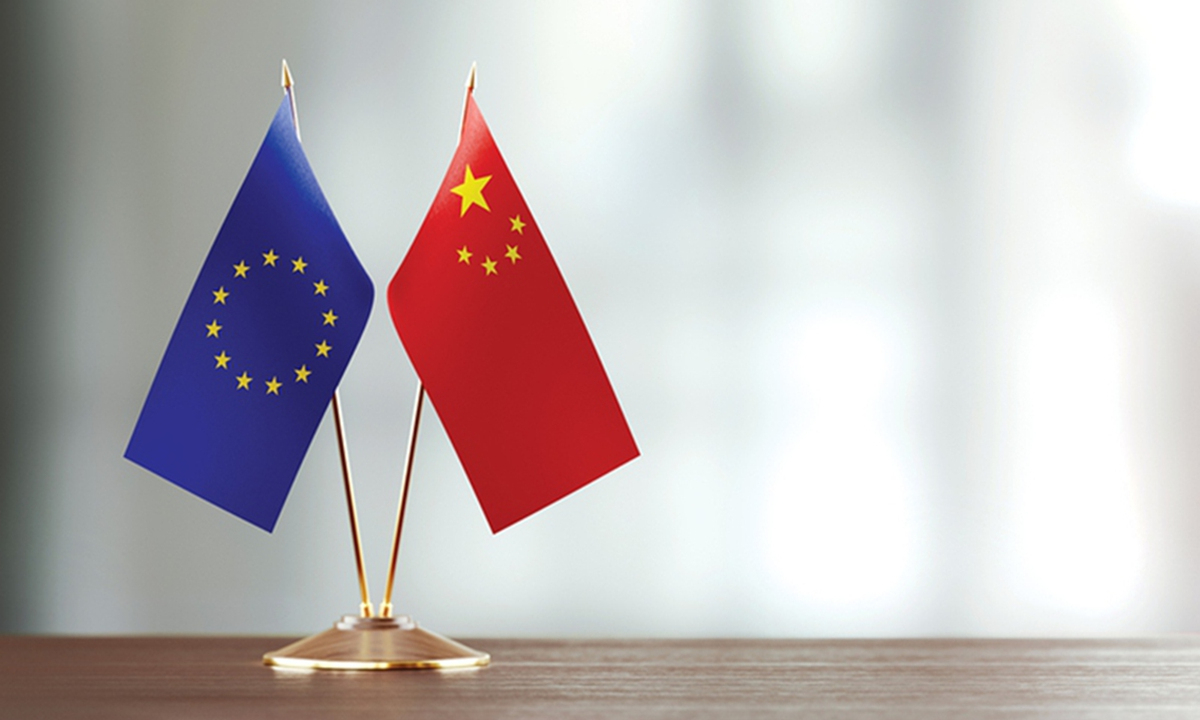Hyping of Chinese influence over vital EU infrastructure won't stop trend of bilateral cooperation: experts

Photo: VCG
China-Europe relations are not determined merely by words from certain institutions that intend to disrupt bilateral relations, and the trend of China-Europe cooperation cannot be stopped, Chinese experts said on Thursday after the European Parliament adopted a report on Wednesday that warned of the risks of growing Chinese influence over critical European infrastructure and called for action to reduce vulnerabilities.
The text allegedly examined how China, through its "military-civil fusion (MCF) strategy," is increasingly gaining access to and exercising influence over critical European infrastructure, such as transport infrastructure and ports, telecommunications networks, rare metals and undersea cables.
The report was drafted by member of the European Parliament (MEP) Klemen Grošelj and adopted by a large majority - 565 votes in favor, 26 against and 31 abstentions - on Wednesday. MEPs called on the EU and member states to implement their expanded regulatory framework quickly to exclude entities that could contribute to the MCF, especially in the field of technology with military applications.
"MEPs are expressing concerns about the so-called growing presence of China in vital EU infrastructure for two purposes. By exerting pressure on China, they hope to attract investment and participation in China's infrastructure to achieve so-called 'reciprocal openness.' They also have security concerns due to NATO interference, which may lead to a certain degree of exclusion for China," Cui Hongjian, professor from the Institute of Regional and Global Governance at Beijing Foreign Studies University, told the Global Times on Thursday.
Also on Wednesday, MEPs adopted a resolution (585 votes to 21 and 26 abstentions) on a comprehensive European port strategy, which cautions about the risk from the economic presence of non-EU countries in European ports and the effect it could have on economic dependence, espionage or sabotage. MEPs called for an urgent risk assessment on the involvement of China and other non-EU countries in maritime infrastructure, and its impact on labor and the environment via a mandatory screening of foreign direct investments, RFI reported.
"Although the European Parliament has a relatively negative stance toward China, it does not represent the mainstream view. China and EU institutions still maintain various forms of communication, dialogue, and exchanges. Progress has been made in some areas. At the same time, China's overall relationship with EU member states remains stable," Cui noted.
At the start of 2024, high-level interactions between China and European countries have become close. On January 10, top leaders of China and Finland had talks via video link. One day later, Belgian Prime Minister Alexander De Croo arrived in Beijing to start his two-day visit to China as the first leader of a European country that China has received in 2024. And Chinese Premier Li Qiang went on a trip to Europe from January 14 to 17. Besides attending the World Economic Forum Annual Meeting 2024, Li also paid an official visit to Switzerland and Ireland.
